A Community in Exile: Gaza’s Young Cancer Patients Find Care and Connection in Jordan
Posted in: Programs
For years, cancer treatment in Gaza has been heartbreakingly limited. The Turkish-Palestinian Friendship Hospital, Gaza’s only specialized cancer facility, meant survival for thousands of Gaza cancer patients. Its total destruction during the war has left an already‐strained system without one of its most critical pillars. Even before the hospital fell, families routinely navigated a maze of permits to take their children to the West Bank for life-saving treatments like chemotherapy for leukemia or lymphoma.
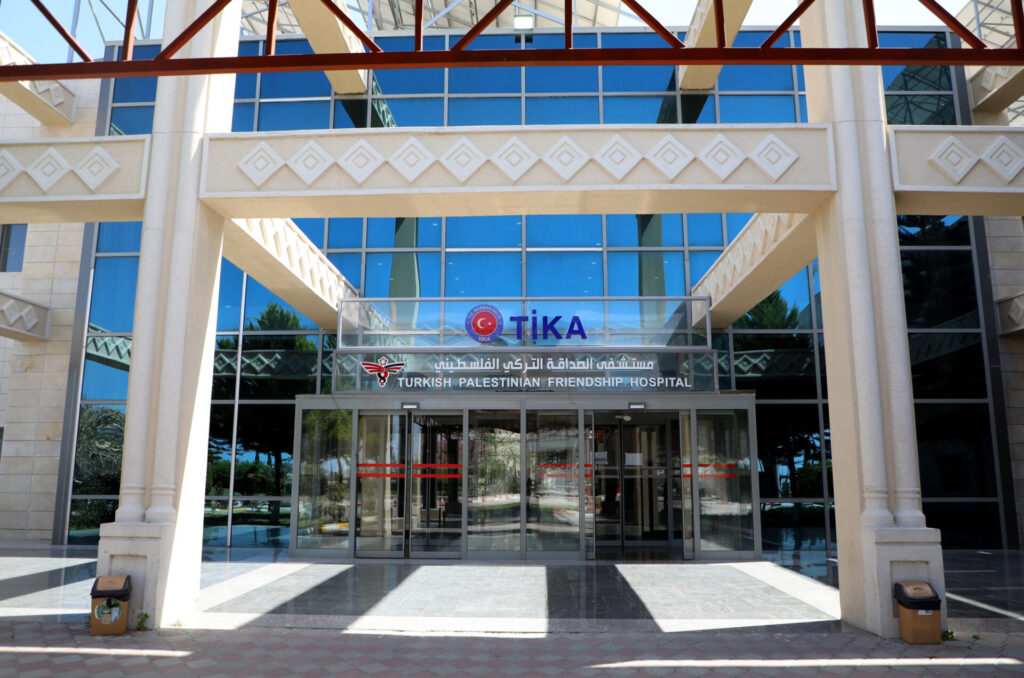

When the war began in October 2023, those medical transfers halted overnight. Suddenly, parents were left facing the unthinkable: their children needed urgent cancer care, and there was nowhere left to turn. In this crisis, the King Hussein Cancer Center in Amman stepped forward. They opened their doors to Gaza’s children and to the families who would need to accompany them.
A Community of 500 in Amman
Today, nearly 150 young cancer patients from Gaza are receiving treatment in Jordan. With their parents and siblings, the group numbers around 500 people, spread across three hotels in Amman. Their days revolve around hospital visits, school and the constant worry about loved ones back home.
Thanks to St. Jude, families receive support for daily meals, and children attend nearby private schools at no cost. But there are still gaps, especially with so many families cooking in their rooms to meet the special dietary needs of their children, or needing transportation money for medical appointments. And still, through profound loss and uncertainty, they have formed something very powerful: a community and a family built in exile.
“Our relationships are deep. We take care of each other.”
For many families, living far from Gaza has deepened the bonds they share with one another. One father explained, “When you’re living outside your country, the friends you make become your family. We stand up for each other, emotionally, financially, spiritually. This is our culture. This is our faith.”
Many women and mothers are here without their husbands, brothers, or fathers. Other families have stepped into those roles, offering protection, companionship, and support. “We’re each other’s backbones,” one woman said. “If one of us needs something, all of us feel it.”
Communication with Gaza has improved in recent months, but even daily calls bring pain. Families wake up to news of bombings, of loved ones displaced again, or worse. “What we’re going through here is nothing compared to what people in Gaza face,” a father shared. “Whatever you see on TV, it’s so much worse.”
And yet, the longing to return home remains strong. “We don’t care how we live, as long as we can be reunited and live safely,” another parent said. “Home is home, even if it is rubble.”
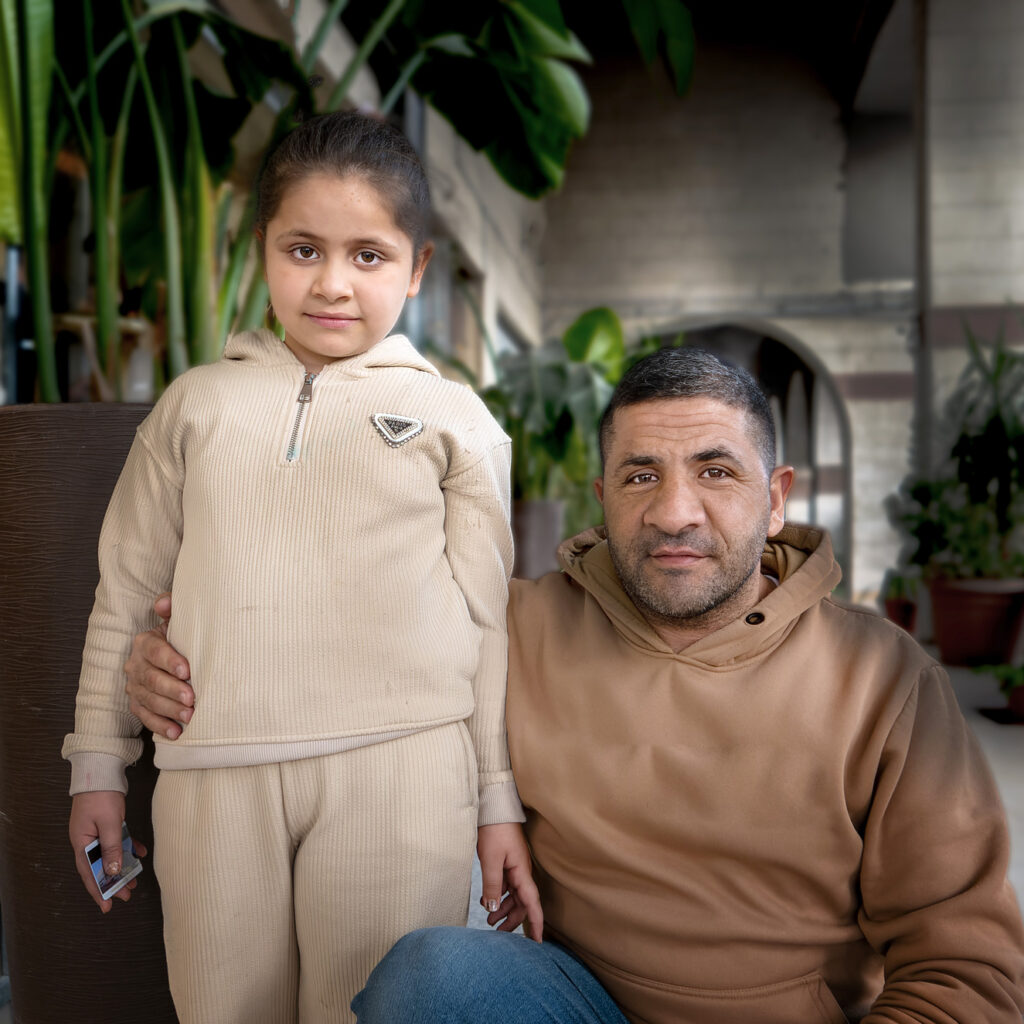

Stories of Courage and Loss
Every family carries a story.
Mariam, 9, from Gaza City, loves school and adores her best friend, Juan. Her father, who lost an eye in the war, spent months shuttling her between Gaza and Ramallah for leukemia treatment before the borders closed. After seven months without therapy, they escaped through Rafah just before it shut and made their way to Jordan for treatment. Mariam has responded well to the treatment and her father has been able to get a new glass eye! In the meantime, Mariam’s mother and siblings remain in Gaza.
Another father described going hospital-to-hospital before meeting “an angel,” a doctor who recognized the severity of his son’s condition and secured the papers for them to leave. Today, that young boy is recovering in Jordan.
Nisreen, a mother of a 17-year-old with a spinal tumor, spent seven months in an Egyptian hospital where her son couldn’t get the treatment he needed and where strict rules prevented her from even stepping outside the building. Desperate, she signed a personal liability waiver, forfeiting her right to care, just to secure his release. Her swift decision enabled them to reach Jordan. Tragically, he passed away two months after their arrival in the country.
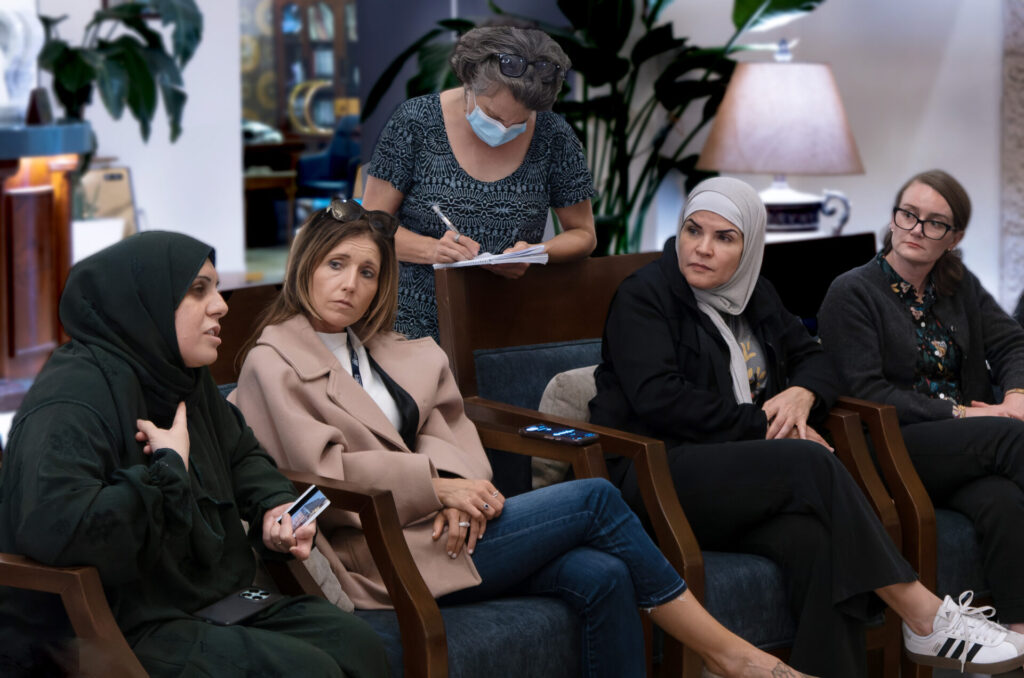

One mother who arrived with her two children watched her son recover beautifully from cancer only to be killed by a car in front of their hotel. Now her children remain in Jordan without parents, held tightly by the community that has adopted them.
Another very young mother, carrying a two-year-old boy hooked to an oxygen tank, explained that he did not respond to the treatment. So he was taken off the treatment and now is getting pain killers until he inevitably dies.
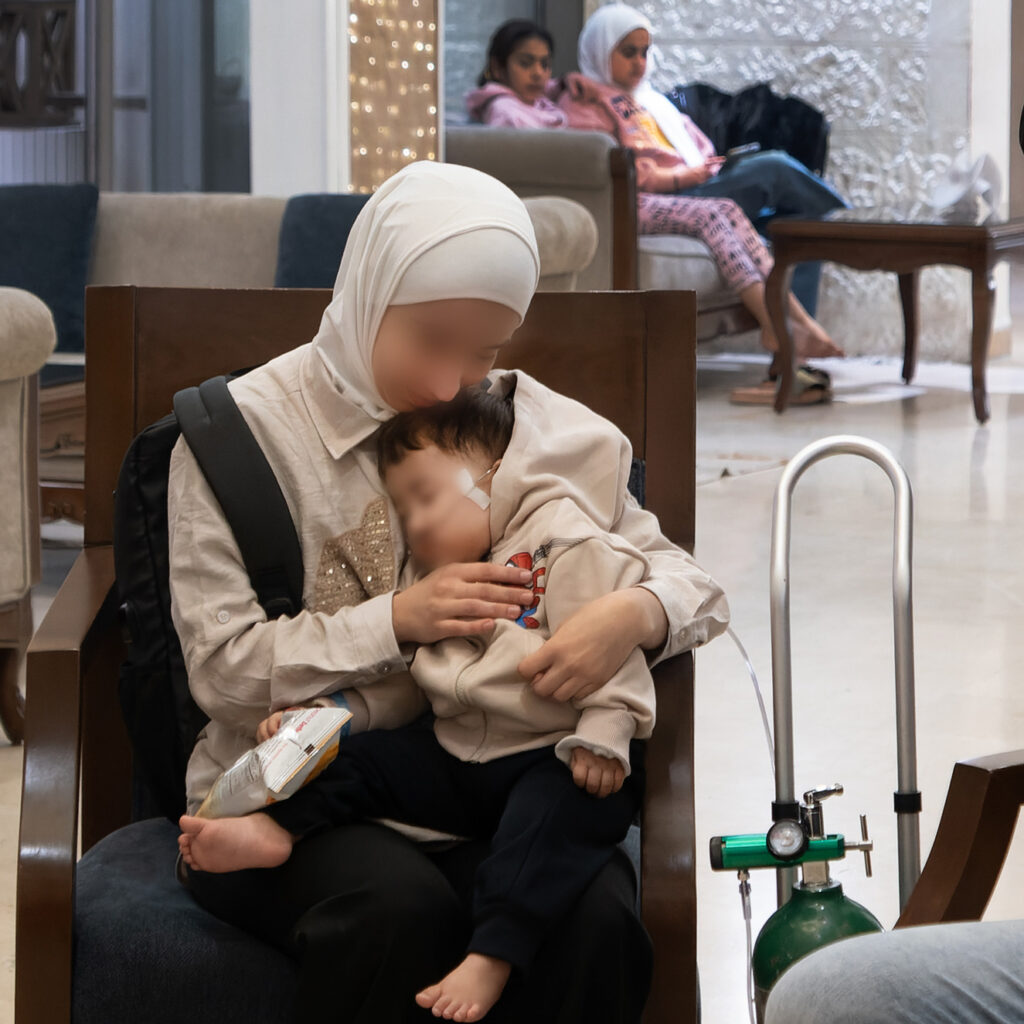

Another story tells of a two-year-old girl who came with her uncle because her parents were not granted permission to leave Gaza with her. She is now four and still separated from her mother, father, brothers and sisters in Gaza.
These are only a few stories. There are hundreds more.
How Anera Is Stepping In
Anera is stepping in to support these families with a holistic program tailored to their most urgent needs. At the heart of the effort is monthly cash assistance which allows families to purchase fresh food, transportation and other essentials that the current system doesn’t cover. We are also providing winter items, such as blankets and jackets, produced locally by vulnerable artisans in Jordan, ensuring that our support uplifts the host community as well.
To strengthen the emotional and educational well-being of both children and parents, Anera is partnering with the Jordan River Foundation to bring mental health and psychosocial services directly into the hotels where families live. Children will have access to expressive arts therapy, academic support and literacy materials, while parents will receive one-on-one counseling sessions to help them cope with stress and loss. Volunteers will play an important role in this work, reading with children, assisting those who need extra care and helping with daily program activities.
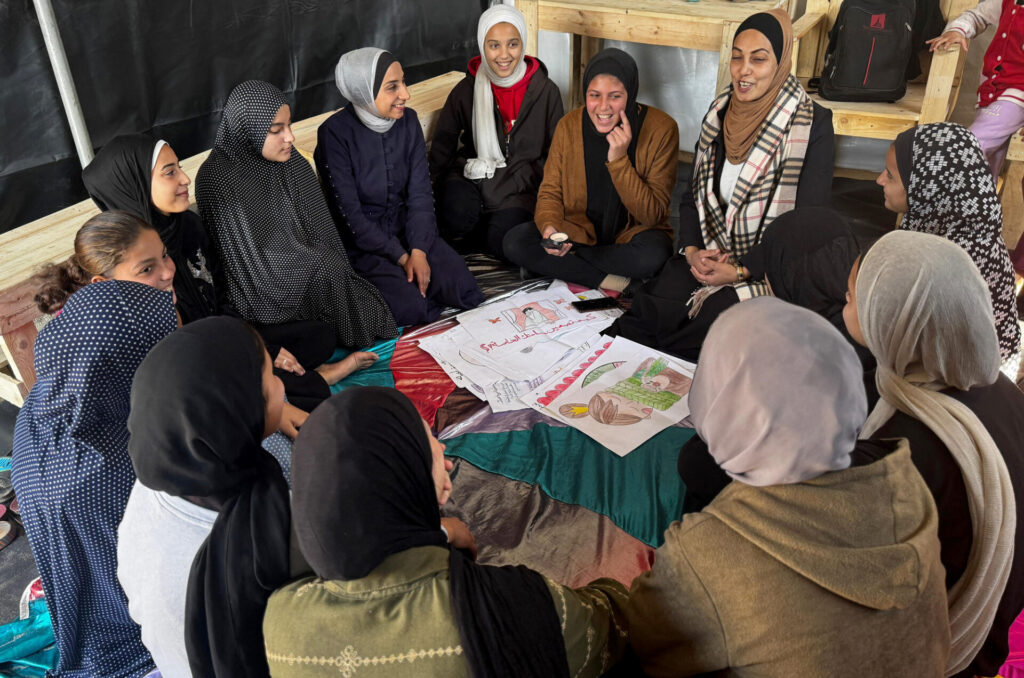

We are also establishing a system to track new arrivals so no one falls through the cracks. And when families are eventually able to return to Gaza, Anera will stay with them, connecting them to our programs on the ground so they have continued support through the next chapter of their journey.
A Community Healing and Waiting for Home
The young patients from Gaza and their families are safe today, but they are living every day with uncertainty about their treatment, about their futures and about whether they will ever see their homes and loved ones again.
They carry grief, trauma, hope and strength in equal measure.
What they have built together in Amman – a community rooted in mutual care, protection and love – is nothing short of extraordinary. And Anera is committed to standing with them, strengthening this community, and ensuring they are not alone.
OUR BLOG
Related
Every year, November 29 marks the International Day of Solidarity with the Palestinian People — a date observed by the United Nation for over four decades. Learn more about how you can support Palestine and Palestinians.
You can make a life-changing difference for someone facing hardship by making a donation to Anera this GivingTuesday, December 2.
